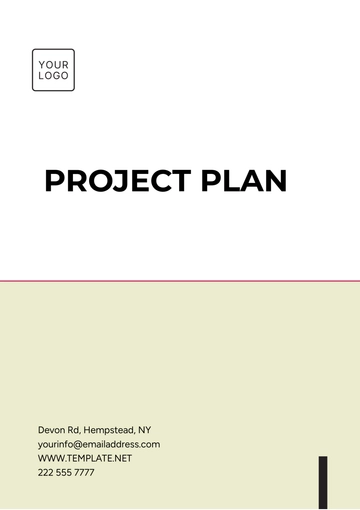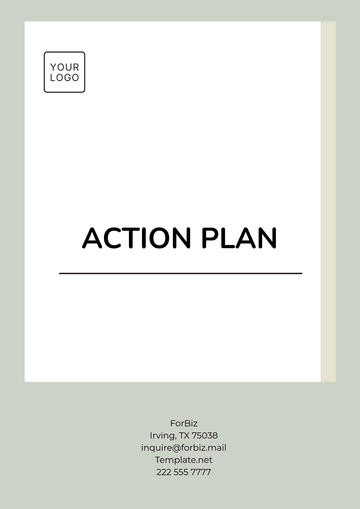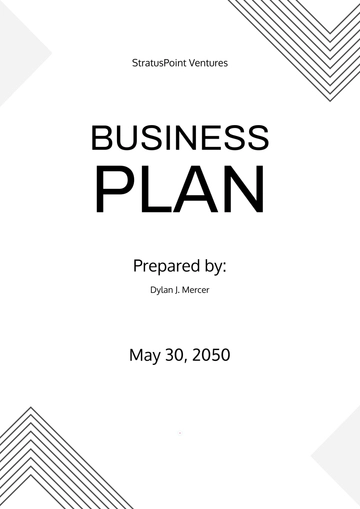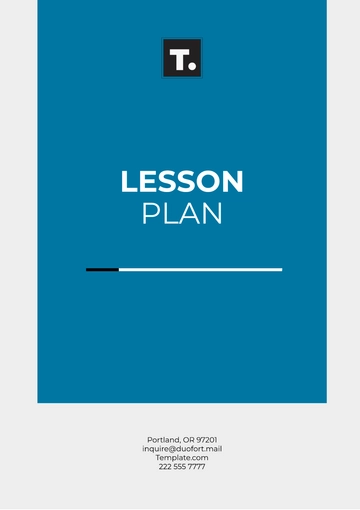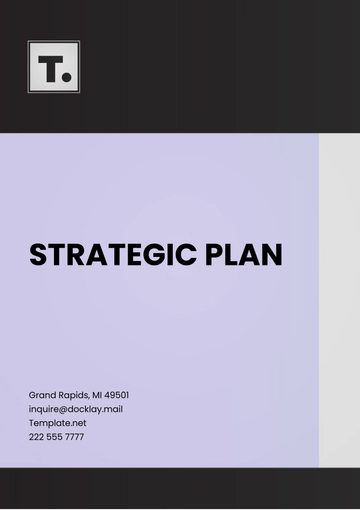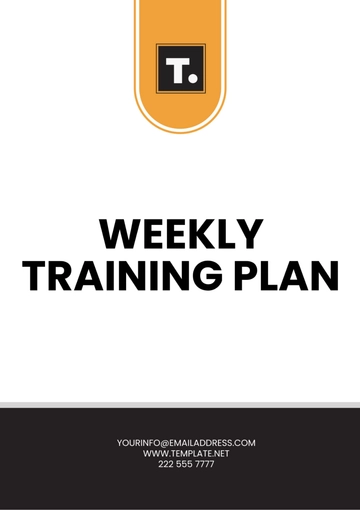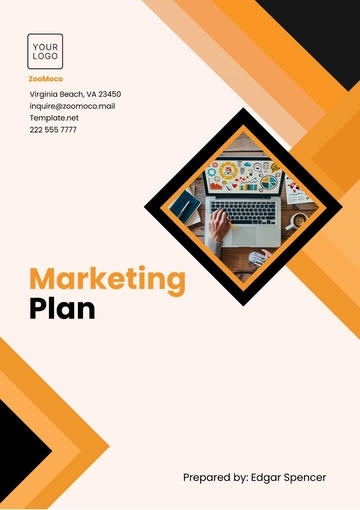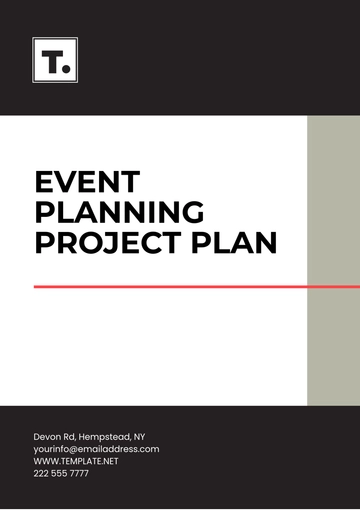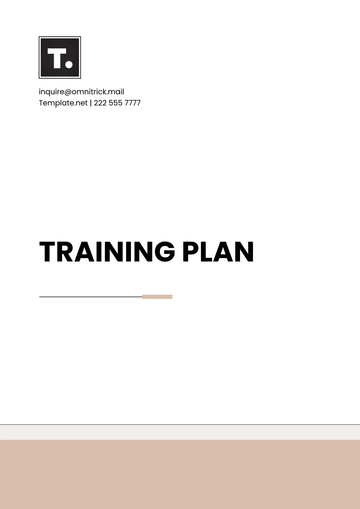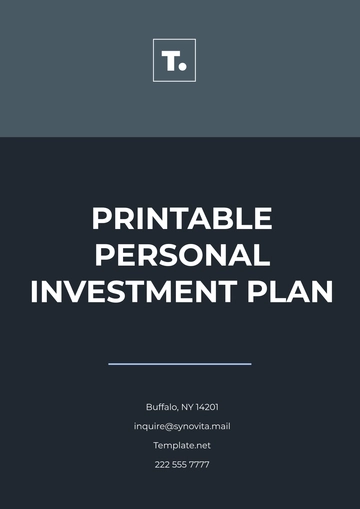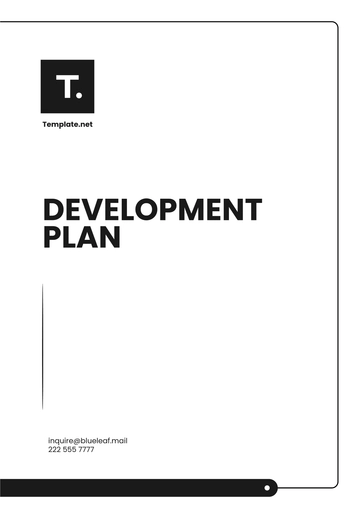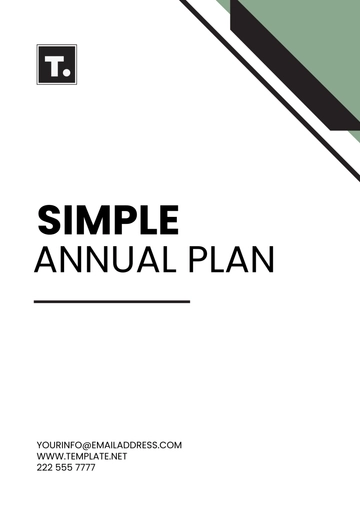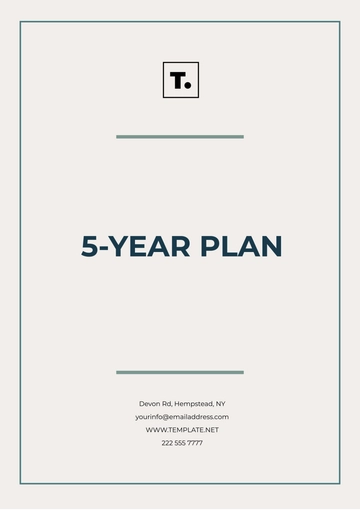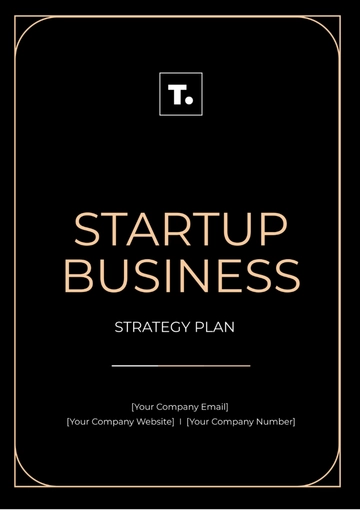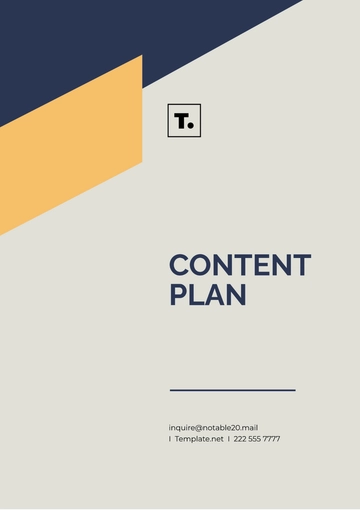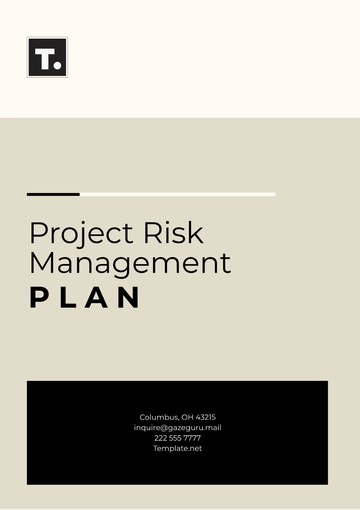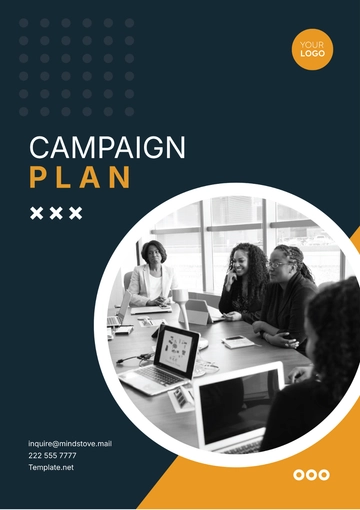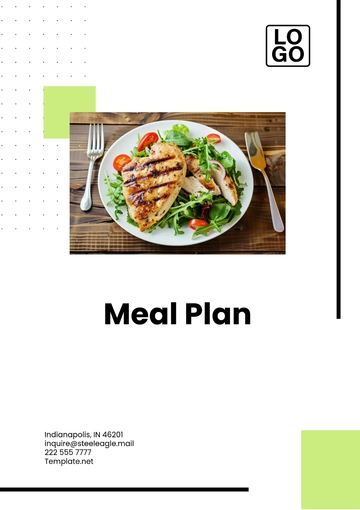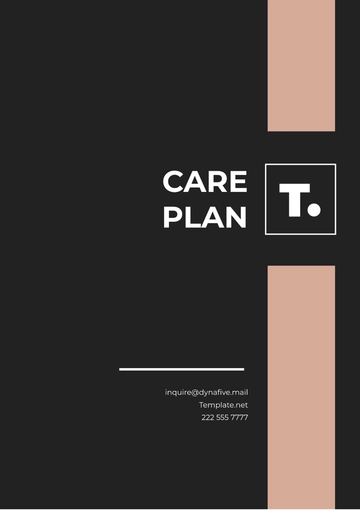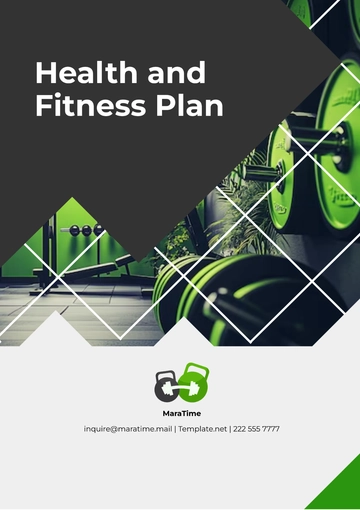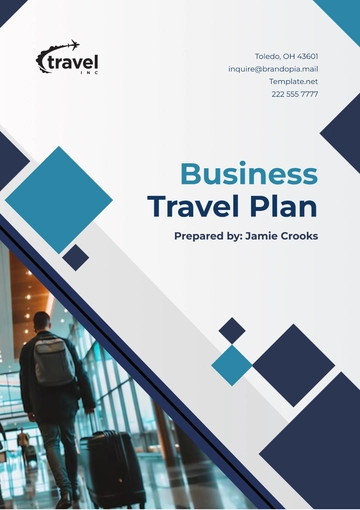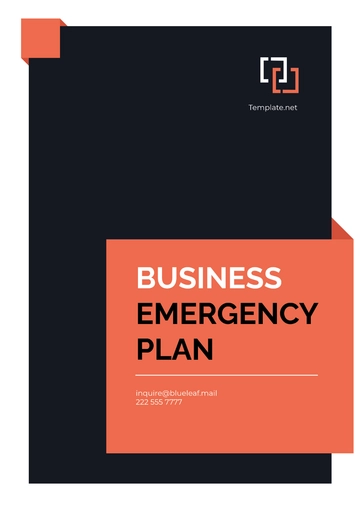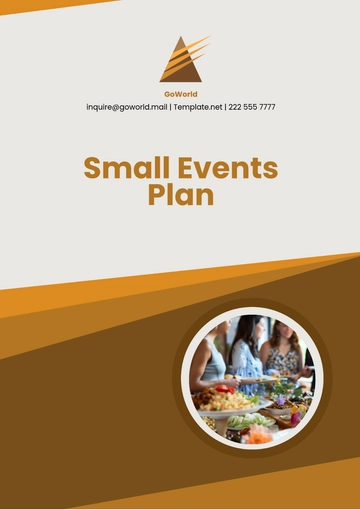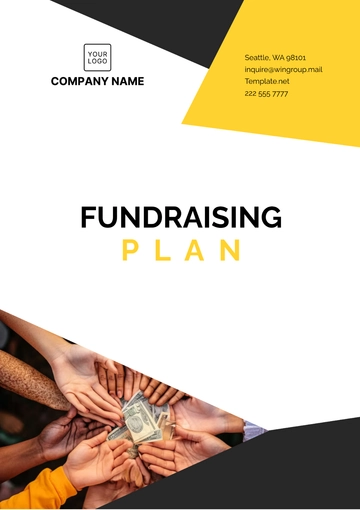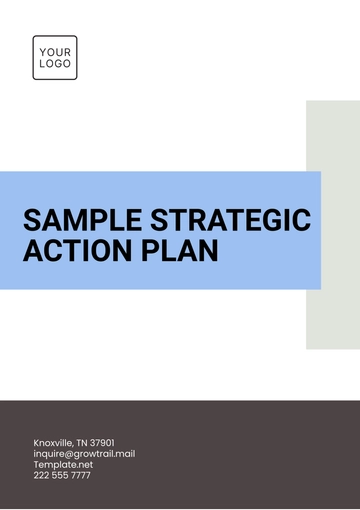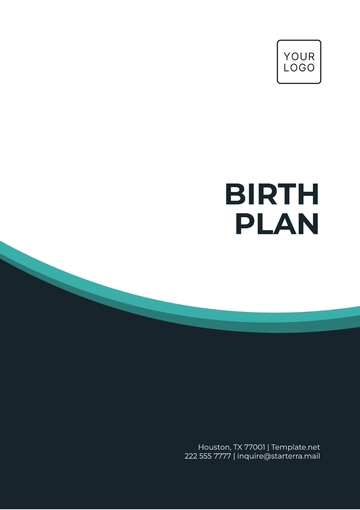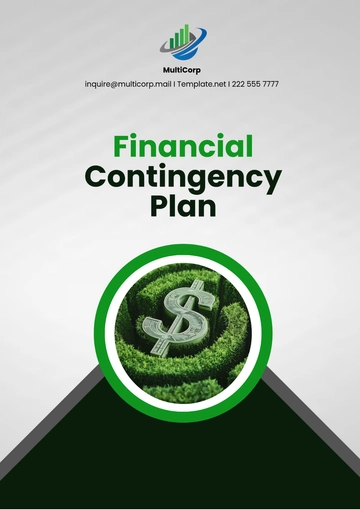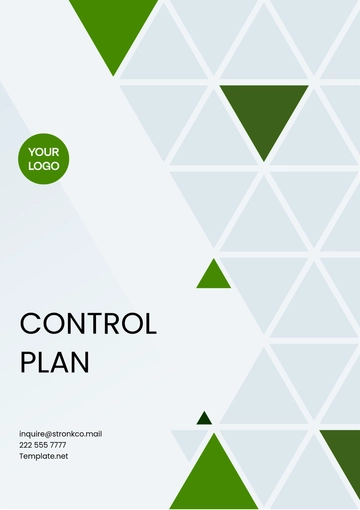Free Consultant Plan
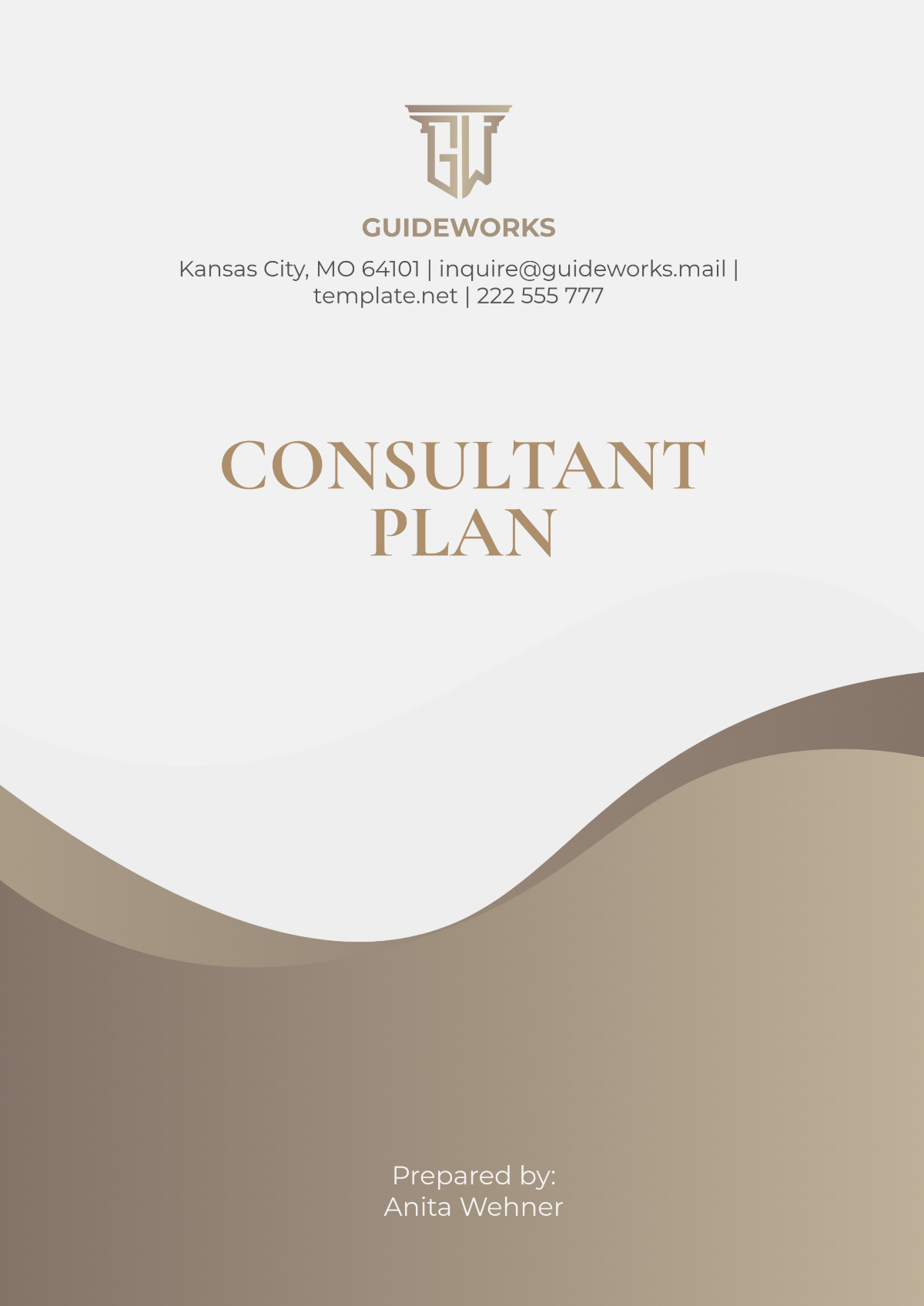
I. Executive Summary
The Consultant Plan serves as a comprehensive roadmap for [Your Company Name] to expand and enhance its consulting services, providing high-value solutions to businesses across various industries. With a strong foundation built on years of industry expertise, innovative methodologies, and a team of skilled professionals, we aim to assist organizations in overcoming challenges, improving efficiency, and achieving long-term success. This plan outlines how we will engage clients, deliver results, and sustain growth over the next decade and beyond.
The consulting services are designed to be adaptable, offering flexibility in scope and execution, catering to a diverse range of industries. Our consulting approach emphasizes data-driven decision-making, leveraging advanced technologies such as artificial intelligence (AI), data analytics, and automation tools to generate actionable insights. By doing so, [Your Company Name] can help clients transform their operations, implement cutting-edge strategies, and navigate the complexities of modern business landscapes.
Through this plan, we seek to build lasting relationships with clients, ensuring that they not only achieve their immediate goals but also become more resilient, competitive, and future-proof. The plan is aligned with our strategic vision, which aims to position [Your Company Name] as a global leader in consulting services by 2060. The projected milestones and expected outcomes demonstrate a clear path toward achieving these ambitious goals, providing both short-term and long-term value to our clients.
Projected Highlights:
Anticipated Client Engagements: [500+] over the next five years, with significant potential for repeat business.
Projected Revenue Growth: An increase of [$5M] annually from consulting services, with total revenue exceeding [$30M] by 2055.
Success Rate: [98%] of clients report satisfaction with the outcomes of our consulting projects, with many opting for ongoing partnerships.
II. Objectives
A. Short-Term Goals
Acquire [100] new clients within [12 months].
Our goal is to expand our client base by targeting small- to medium-sized enterprises (SMEs) that require strategic guidance to scale their operations. SMEs often face resource constraints and need tailored solutions that can be implemented quickly and effectively. Through targeted marketing campaigns, networking events, and strategic outreach, we plan to engage [100] new clients within the first year.
We will leverage our expertise in digital marketing and inbound strategies to raise brand awareness, build relationships, and showcase the results we’ve achieved with other clients. This approach is designed to position [Your Company Name] as a trusted advisor in the consulting industry.
Establish a dedicated consulting division in three major regions.
To achieve sustained growth and ensure our consultants can provide localized expertise, we will establish dedicated consulting divisions in key regions: North America, Europe, and Asia-Pacific. These regions have been identified based on their robust market demand for consulting services, as well as the increasing trend of businesses seeking global consulting firms with regional expertise.
By hiring [20] experienced consultants in each region, we will be able to deliver more personalized services and increase client satisfaction. Additionally, local offices will serve as hubs for project coordination and client engagement, enhancing our overall efficiency and responsiveness to clients' needs.
B. Long-Term Goals
Position [Your Company Name] as a top [10] global consultancy firm by 2060.
Our long-term ambition is to become one of the most recognized and respected consulting firms globally. Achieving this goal will require continuous investment in talent, technology, and innovative solutions. We will need to expand our presence internationally, diversify our service offerings, and continuously adapt to changes in the business landscape.
A key component of this goal is building strategic partnerships with leading technology firms, academic institutions, and industry thought leaders. By remaining at the forefront of new developments in technology and management practices, we will be able to offer clients the best possible solutions for their business challenges.
Achieve a [50%] increase in repeat client engagements within five years.
Client retention and repeat engagements are critical to the long-term success of any consulting business. To achieve this goal, we will focus on delivering exceptional value to clients during the initial phases of their engagements. We will then build on these relationships by offering ongoing support, continuous improvement programs, and post-project follow-up services that ensure sustained success for our clients. By demonstrating measurable results, such as increased profitability, enhanced efficiency, and improved market position, we will inspire trust and confidence, which is essential for fostering long-term partnerships.
Additionally, we will implement a client feedback loop, where clients can provide insights into our service quality, and we will adjust our strategies and offerings accordingly. This proactive approach to client service will enhance satisfaction, leading to higher retention rates and more repeat engagements.
Develop proprietary frameworks for strategy and operations consulting.
One of the core long-term objectives is the creation of proprietary consulting frameworks that are tailored to address the unique needs of different industries and business sizes. These frameworks will be based on years of research, client feedback, and data analysis.
By developing and refining these methodologies, we will be able to offer more consistent and replicable results, while also differentiating [Your Company Name] from competitors. Our frameworks will not only focus on business strategy and operations but will also integrate the latest technological advancements, ensuring that our clients benefit from the most innovative and effective solutions available.
III. Target Market
A. Primary Industries
Technology and Innovation
The technology sector continues to experience rapid growth, with businesses investing heavily in new digital tools, AI, and automation to remain competitive. [Your Company Name] will focus on assisting tech companies in developing and executing strategies that harness these advancements to optimize operations, improve product development cycles, and create new revenue streams.
In addition to providing strategic advice on AI adoption and data management, we will also offer guidance on market entry strategies, particularly for businesses looking to expand into emerging markets such as Africa, Southeast Asia, and Latin America.
Market Potential: The technology industry is expected to reach a value of [$15B] by 2055, with innovations in AI, machine learning, and blockchain driving growth. As such, this industry represents a high-potential target for our consulting services.
Healthcare and Biotechnology
The healthcare and biotechnology sectors are undergoing a transformation, driven by technological advances such as telemedicine, genomic sequencing, and personalized medicine. [Your Company Name] aims to support organizations in this space by providing strategic advice on R&D efficiency, regulatory compliance, and digital health solutions.
As the industry becomes increasingly complex and competitive, businesses will need to innovate quickly while maintaining cost-efficiency. We will help clients navigate these challenges by identifying growth opportunities, streamlining operational processes, and leveraging new technologies to enhance patient care and reduce costs.
Market Potential: The global healthcare market is projected to experience [$12B] in growth by 2055, primarily driven by technological integration and the increasing demand for personalized healthcare solutions.
Renewable Energy and Sustainability
The push toward sustainability has made renewable energy a key area of focus for governments, businesses, and consumers alike. [Your Company Name] will provide consulting services that help companies in the energy and sustainability sectors adopt cutting-edge technologies, improve energy efficiency, and meet regulatory requirements.
We will assist clients in developing and implementing renewable energy projects, such as solar and wind farms, and will advise on how to transition to more sustainable business practices. This also includes advising on sustainability certifications and carbon footprint reduction.
Market Potential: The renewable energy market is set to grow by [$10B+] by [Year 2055], with increasing investment in wind, solar, and energy storage technologies. Our services will be essential for companies seeking to capitalize on this shift toward green energy.
B. Client Segments
Startups and SMEs
Startups and small- to medium-sized enterprises (SMEs) often face unique challenges, including limited resources, market competition, and the need for rapid scaling. [Your Company Name] will provide consulting services that address these issues by helping businesses develop sustainable growth strategies, optimize operations, and enter new markets.
We will work with clients to develop scalable business models, improve internal processes, and enhance digital capabilities. Additionally, we will assist in securing funding, navigating regulatory environments, and developing marketing strategies that resonate with target audiences.
Large Corporations
Large corporations require consulting services that address complex challenges such as global expansion, mergers and acquisitions, regulatory compliance, and talent management. [Your Company Name] will partner with these organizations to refine business strategies, implement digital transformation initiatives, and streamline operations to ensure that they remain competitive in an increasingly globalized and digitized economy.
We will provide customized solutions that take into account each corporation’s unique organizational structure, culture, and market position, ensuring that our advice is relevant and actionable.
Public Sector Organizations
Public sector organizations, including governments, non-profits, and international institutions, often require consulting services that help them improve service delivery, streamline operations, and develop policies that promote social and economic growth.
[Your Company Name] will assist public sector organizations by advising on policy development, providing data-driven insights, and enhancing operational efficiency. Additionally, we will offer guidance on digital transformation and help governments leverage technology to improve citizen engagement and service delivery.
IV. Consulting Services
A. Business Strategy
Deliverables:
A well-researched and actionable strategic plan that aligns with the client’s business goals.
SWOT analysis customized for the client’s specific market position, providing clear insights into strengths, weaknesses, opportunities, and threats.
Comprehensive advisory for mergers, acquisitions, partnerships, and competitive strategies.
A strategic risk management plan that helps identify potential risks and outlines methods to mitigate them.
Process:
Stakeholder Interviews and Data Collection: Our consultants begin by conducting in-depth interviews with key stakeholders, including executives, managers, and employees, to understand the client's current business environment and strategic goals.
Market and Competitor Analysis: We analyze the client’s industry, competitive landscape, and customer base to uncover opportunities and threats. This helps inform strategic decisions related to market entry, product development, and competitive positioning.
Strategic Roadmap Creation: Based on the insights gathered, we craft a detailed strategy roadmap that outlines short-term and long-term goals, key performance indicators (KPIs), and action plans.
Implementation and Monitoring: We work alongside the client to implement the strategy, providing ongoing monitoring and performance evaluation to ensure that goals are met.
Case Example:
In 2050, we partnered with [Partner Company Name], a leading technology firm, to design a comprehensive growth strategy for their entry into the European market. Within [two years], the company saw a [25%] increase in market share, significantly outpacing competitors.
B. Operations and Performance Improvement
Deliverables:
Detailed workflow optimization plans that identify inefficiencies and propose solutions.
Cost-reduction strategies that focus on improving operational margins and streamlining processes.
Lean and Six Sigma-based operational frameworks that improve productivity while maintaining quality standards.
Process:
Current State Assessment: Our team conducts a thorough assessment of the client’s existing operations, identifying bottlenecks, redundancies, and areas for improvement.
Process Mapping: We map out existing workflows to gain a deep understanding of how processes are currently executed and where improvements can be made.
Tailored Solution Development: Based on the analysis, we develop customized solutions that address specific challenges, whether it’s optimizing supply chains, improving customer service operations, or automating manual tasks.
Implementation Support: We assist with the implementation of the proposed changes, ensuring smooth transitions and providing training to employees to adopt new processes.
Impact Metrics:
Metric | Baseline | Improvement Target |
|---|---|---|
Cost Reduction | 10% | 30% |
Productivity Increase | 85% | 95%+ |
C. Digital Transformation
Deliverables:
A technology adoption roadmap that outlines a clear path to digital maturity.
Data analytics frameworks that enable businesses to leverage their data for decision-making.
Custom training programs to build digital competencies within client organizations.
Process:
Digital Maturity Assessment: We begin by evaluating the client’s current digital capabilities, including their IT infrastructure, data management practices, and overall digital strategy.
Technology Selection and Roadmap: Based on the assessment, we recommend the best-fit digital solutions, including software tools, platforms, and technologies that align with the client’s goals.
Implementation and Change Management: We support the client throughout the implementation phase, ensuring that technology is seamlessly integrated into their operations and that staff are adequately trained to use it effectively.
Example Project:
In 2050, we worked with a healthcare provider to implement an AI-powered diagnostic system. The solution resulted in a [20%] improvement in diagnostic accuracy, leading to better patient outcomes and reduced costs.
D. Market Analysis and Feasibility Studies
Deliverables:
Detailed market reports that provide insights into customer preferences, market trends, and competitor strategies.
Competitive benchmarking to help clients understand how they stack up against key competitors.
Feasibility studies for new projects, helping clients assess the viability of entering new markets or launching new products.
Process:
Data Gathering: We utilize advanced data scraping tools and market research methods to collect up-to-date data on industry trends, consumer behavior, and competitor performance.
Analysis and Insight Generation: Our team analyzes the data to generate actionable insights that will guide strategic decisions. This includes identifying growth opportunities, pricing strategies, and potential risks.
Report Delivery: We provide clients with a comprehensive report that summarizes our findings and offers recommendations for market entry or product development strategies.
V. Marketing and Sales Strategy
A. Marketing Approach
[Your Company Name] understands that a strong marketing strategy is essential to drive awareness, generate leads, and ultimately secure long-term clients. Our marketing efforts will target key decision-makers within our industries of focus, leveraging both traditional and digital marketing channels to maximize reach.
1. Brand Positioning
We will position [Your Company Name] as a leading consultancy firm with a focus on providing cutting-edge solutions that deliver measurable results. Our brand will be associated with innovation, expertise, and client-centric solutions, establishing us as a trusted advisor capable of helping businesses navigate complex challenges and transform their operations.
We will focus on building a strong online presence, leveraging content marketing, thought leadership, and case studies to highlight the success stories of clients who have benefited from our services. Testimonials, whitepapers, and client success stories will be key components in communicating our expertise and results.
2. Digital Marketing Strategy
Given the growing reliance on digital tools and platforms, we will dedicate a significant portion of our marketing budget to digital channels. This will include:
Search Engine Optimization (SEO): By optimizing our website and content for relevant search queries, we aim to increase organic traffic and improve visibility for potential clients searching for consulting services.
Paid Advertising (PPC): We will use targeted paid advertising on platforms such as Google Ads, LinkedIn, and industry-specific websites to reach decision-makers within the target industries.
Social Media Marketing: Our presence on platforms like LinkedIn, Twitter, and Instagram will allow us to share thought leadership, industry insights, and engage with a broad audience of potential clients.
Email Campaigns: We will leverage personalized email campaigns to nurture leads, educate prospects, and promote our services, offering them valuable resources and information to drive conversions.
3. Content Marketing
Content marketing will be an essential part of our strategy to engage potential clients and establish thought leadership within the consulting industry. This will include:
Case Studies and Whitepapers: We will produce in-depth case studies and whitepapers that demonstrate our expertise in solving complex business challenges across various industries. These will be used as lead-generation tools and provide a resource for decision-makers considering our services.
Blog and Video Content: Our website will feature a regularly updated blog with articles focused on industry trends, best practices, and actionable advice for businesses. Video content, such as interviews with consultants, client success stories, and explainer videos, will also be used to enhance engagement.
Webinars and Online Events: Hosting webinars and virtual events will allow us to engage with potential clients, showcase our thought leadership, and generate high-quality leads.
4. Networking and Events
Networking events, industry conferences, and trade shows will provide us with the opportunity to connect with potential clients face-to-face, build relationships, and increase brand awareness. We will participate in key industry events and sponsor relevant conferences to demonstrate our commitment to the industries we serve.
B. Sales Strategy
The sales strategy at [Your Company Name] will focus on building strong, long-lasting relationships with clients through personalized service and consultative selling techniques. Our sales team will work closely with clients to understand their challenges and objectives, tailoring solutions that align with their specific needs.
1. Lead Generation and Qualification
Our sales process will be driven by a combination of inbound and outbound marketing efforts. We will generate leads through content marketing, SEO, PPC campaigns, and social media engagement. Additionally, our sales team will be proactive in reaching out to potential clients by attending industry events and leveraging professional networks.
Once leads are generated, they will be qualified based on several criteria, such as:
Budget and spending power
Industry alignment
Specific business needs and objectives
Decision-making authority
2. Consultative Selling Approach
At the heart of our sales strategy is a consultative approach, where our sales professionals act as trusted advisors to prospects. Rather than pushing a one-size-fits-all solution, we will focus on understanding the client's specific challenges, pain points, and business goals. From there, we will craft tailored solutions that address their needs and demonstrate clear value.
3. Account Management and Client Retention
Once a client is onboarded, we will assign an account manager who will oversee the entire engagement, ensuring that the client receives exceptional service. The account manager will act as the primary point of contact, helping to manage expectations and ensuring that all deliverables are met on time.
We will also focus on proactive client retention by offering ongoing support, providing regular check-ins to ensure the client’s goals are being met, and identifying new opportunities for collaboration. This approach will help foster long-term relationships and increase the likelihood of repeat business.
VI. Financial Plan
A. Revenue Model
The revenue model for [Your Company Name] is based on a combination of fixed-price, time-and-materials, and retainer-based consulting contracts. The specific pricing structure will depend on the scope of the project, client requirements, and the nature of the engagement.
1. Fixed-Price Contracts
For well-defined projects with clear deliverables and timelines, we will offer fixed-price contracts. These contracts will be based on a comprehensive assessment of the work required, with payment milestones tied to specific deliverables or project phases. This pricing model ensures clients have a predictable cost structure, while [Your Company Name] can effectively manage resources and timelines.
2. Time-and-Materials Contracts
For projects where the scope or timeline is less predictable, we will offer time-and-materials contracts. In this model, clients are billed based on the actual time spent by consultants and any materials or resources used during the engagement. This flexible pricing model allows us to accommodate changes in scope and ensure that clients are only paying for the work actually performed.
3. Retainer Contracts
For clients requiring ongoing support or strategic advisory services, we will offer retainer agreements. Retainers provide clients with a fixed monthly fee in exchange for a set number of hours of consulting services each month. This model ensures that clients receive continuous value and support while providing [Your Company Name] with a stable revenue stream.
B. Projected Revenue and Growth
Over the next decade, we project strong growth in both revenue and client base, with the following key financial goals:
1. Annual Revenue Growth
We anticipate an annual revenue growth of [25%] over the next five years, driven by an increase in client engagements and the expansion of our service offerings. By [Year 2055], we project total revenue of [$30M] from consulting services, with contributions from both new clients and ongoing engagements with existing clients.
Year | Projected Revenue | Year-on-Year Growth |
|---|---|---|
2050 | $5M | N/A |
2051 | $6.25M | 25% |
2052 | $7.81M | 25% |
2053 | $9.76M | 25% |
2054 | $12.2M | 25% |
2055 | $15.25M | 25% |
2. Client Acquisition Goals
We aim to acquire [100+] new clients annually, increasing the client base each year. As client retention and repeat business are expected to grow, the number of clients with ongoing engagements will also increase. We anticipate that by 2055, [50%] of our revenue will come from repeat business, with long-term clients continuing to rely on our consulting services for their evolving needs.
C. Operating Expenses
The primary operating expenses for [Your Company Name] will include personnel costs, technology and software investments, marketing, office space, and general administrative expenses. We will manage these costs efficiently to ensure profitability while continuing to invest in the growth of the business.
1. Personnel Costs
Consultants and support staff will constitute the majority of our operating expenses. By 2055, we anticipate having a team of [200+] professionals across various global regions, resulting in personnel costs that will increase in line with company growth. However, as we scale, we will continue to optimize our workforce to maintain operational efficiency.
2. Technology and Software
Investments in technology and software will be critical for supporting our consulting services, data analytics, and client management. We plan to allocate [15%] of our revenue toward acquiring and maintaining cutting-edge software platforms that enable us to deliver world-class services.
3. Marketing Expenses
Marketing expenses will increase in line with the growth of our business and the need to reach a wider audience. We will allocate approximately [10%] of annual revenue to marketing activities, focusing on digital channels, event sponsorships, and lead-generation initiatives.
VII. Risk Analysis and Mitigation
A. Potential Risks
Market Fluctuations
Economic downturns and market fluctuations could impact client budgets and demand for consulting services. To mitigate this risk, we will diversify our client base across different industries and geographies, ensuring that we are not overly reliant on any single market or sector.Competitive Pressures
The consulting industry is highly competitive, with new players entering the market regularly. We will differentiate ourselves by offering specialized expertise in key industries, building strong client relationships, and continuously improving our service offerings to stay ahead of competitors.Regulatory and Compliance Risks
Changes in regulations, particularly in industries like healthcare and finance, could pose challenges for our clients and affect our consulting strategies. We will mitigate this risk by staying up-to-date with regulatory changes and ensuring that our consulting services are fully compliant with all relevant laws and standards.
B. Risk Mitigation Strategies
Diversification of Offerings
By diversifying our service offerings across different industries, geographies, and client segments, we will reduce our exposure to fluctuations in any one market.Continuous Innovation
We will invest in research and development to stay ahead of emerging trends and technologies, ensuring that we can offer innovative and relevant solutions to our clients.Client-Centric Approach
Maintaining a strong focus on client satisfaction will ensure that we are resilient in the face of competition. Satisfied clients are more likely to provide repeat business and referrals, helping to maintain steady growth.
VIII. Conclusion
The Consultant Plan provides a clear and comprehensive strategy for [Your Company Name] to expand its consulting services over the next decade and beyond. With a strong focus on client satisfaction, industry expertise, and innovative solutions, we are poised to become a global leader in the consulting space. By executing this plan, we will achieve sustainable growth, build lasting client relationships, and deliver measurable impact to businesses across a variety of sectors. As we move forward, we will continue to adapt to the ever-changing business landscape, ensuring that we remain at the forefront of the consulting industry.
- 100% Customizable, free editor
- Access 1 Million+ Templates, photo’s & graphics
- Download or share as a template
- Click and replace photos, graphics, text, backgrounds
- Resize, crop, AI write & more
- Access advanced editor
Plan your consultancy projects effectively with the Consultant Plan Template from Template.net. This editable and customizable template offers a structured framework for setting goals, timelines, and deliverables. Use the AI Editor Tool to tailor it to your needs. Download now to begin organizing your consulting projects with ease.
You may also like
- Finance Plan
- Construction Plan
- Sales Plan
- Development Plan
- Career Plan
- Budget Plan
- HR Plan
- Education Plan
- Transition Plan
- Work Plan
- Training Plan
- Communication Plan
- Operation Plan
- Health And Safety Plan
- Strategy Plan
- Professional Development Plan
- Advertising Plan
- Risk Management Plan
- Restaurant Plan
- School Plan
- Nursing Home Patient Care Plan
- Nursing Care Plan
- Plan Event
- Startup Plan
- Social Media Plan
- Staffing Plan
- Annual Plan
- Content Plan
- Payment Plan
- Implementation Plan
- Hotel Plan
- Workout Plan
- Accounting Plan
- Campaign Plan
- Essay Plan
- 30 60 90 Day Plan
- Research Plan
- Recruitment Plan
- 90 Day Plan
- Quarterly Plan
- Emergency Plan
- 5 Year Plan
- Gym Plan
- Personal Plan
- IT and Software Plan
- Treatment Plan
- Real Estate Plan
- Law Firm Plan
- Healthcare Plan
- Improvement Plan
- Media Plan
- 5 Year Business Plan
- Learning Plan
- Marketing Campaign Plan
- Travel Agency Plan
- Cleaning Services Plan
- Interior Design Plan
- Performance Plan
- PR Plan
- Birth Plan
- Life Plan
- SEO Plan
- Disaster Recovery Plan
- Continuity Plan
- Launch Plan
- Legal Plan
- Behavior Plan
- Performance Improvement Plan
- Salon Plan
- Security Plan
- Security Management Plan
- Employee Development Plan
- Quality Plan
- Service Improvement Plan
- Growth Plan
- Incident Response Plan
- Basketball Plan
- Emergency Action Plan
- Product Launch Plan
- Spa Plan
- Employee Training Plan
- Data Analysis Plan
- Employee Action Plan
- Territory Plan
- Audit Plan
- Classroom Plan
- Activity Plan
- Parenting Plan
- Care Plan
- Project Execution Plan
- Exercise Plan
- Internship Plan
- Software Development Plan
- Continuous Improvement Plan
- Leave Plan
- 90 Day Sales Plan
- Advertising Agency Plan
- Employee Transition Plan
- Smart Action Plan
- Workplace Safety Plan
- Behavior Change Plan
- Contingency Plan
- Continuity of Operations Plan
- Health Plan
- Quality Control Plan
- Self Plan
- Sports Development Plan
- Change Management Plan
- Ecommerce Plan
- Personal Financial Plan
- Process Improvement Plan
- 30-60-90 Day Sales Plan
- Crisis Management Plan
- Engagement Plan
- Execution Plan
- Pandemic Plan
- Quality Assurance Plan
- Service Continuity Plan
- Agile Project Plan
- Fundraising Plan
- Job Transition Plan
- Asset Maintenance Plan
- Maintenance Plan
- Software Test Plan
- Staff Training and Development Plan
- 3 Year Plan
- Brand Activation Plan
- Release Plan
- Resource Plan
- Risk Mitigation Plan
- Teacher Plan
- 30 60 90 Day Plan for New Manager
- Food Safety Plan
- Food Truck Plan
- Hiring Plan
- Quality Management Plan
- Wellness Plan
- Behavior Intervention Plan
- Bonus Plan
- Investment Plan
- Maternity Leave Plan
- Pandemic Response Plan
- Succession Planning
- Coaching Plan
- Configuration Management Plan
- Remote Work Plan
- Self Care Plan
- Teaching Plan
- 100-Day Plan
- HACCP Plan
- Student Plan
- Sustainability Plan
- 30 60 90 Day Plan for Interview
- Access Plan
- Site Specific Safety Plan
